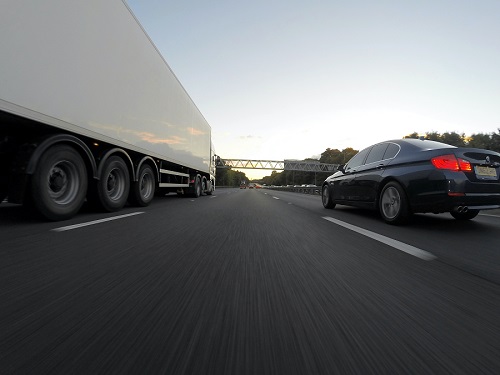
Tesco has announced that, from this month, it is launching the UK’s first commercial use of fully electric, heavy freight articulated trucks.
Two For Use In Wales
In partnership with logistics and international freight forwarding company FSEW, the first of the electric fleet to take to the road will be two new 37 tonne DAF electric vehicles used to transport food and other products from the Wentloog rail terminal near Cardiff to Tesco’s distribution centre in Magor, Wales.
Charging Points
The Wentloog – Magor route is 30 miles each way and logistics partners FSEW has installed charging points at its site in South Wales that provide enough energy to power the lorries for 100 miles before needing to charge again.
Clean, Green Energy
HGVs make up only 5 per cent of vehicle miles but a disproportionately greater contribution to the UK’s domestic transport emissions of around 16 per cent. Tesco says that these first two lorries will be able to replace around 65,000 diesel-fuelled road miles with clean green energy, removing 87.4 tonnes of CO2 per year.
Could Help Meet Zero Emission Targets
It is hoped, therefore, that these newly commissioned EVs could help demonstrate that electric HGV transportation is commercially viable, and in doing so, encourage wider investment in technology and innovation. Electric HGV transportation could play a key role in accelerating not just the haulage industry’s transition to zero emission transport over the next few years, but also Tesco’s own target of reaching net zero emissions in its operations by 2035.
Progress
Jason Tarry, Tesco UK and ROI CEO said: “We’ve already made progress by starting our switch to electric home delivery vans and rolling out electric vehicles charging points for our customers. I’m excited that Tesco can also lead the way in electric haulage innovation, helping to tackle this last source of road transport emissions with the support of FSEW.”
Renewable Energy Partnership Too
Tesco already has a partnership with renewable energy investor, Low Carbon, to create three new solar farms in Essex, Anglesey, and Oxfordshire which can generate up to 130GWh of energy per year, enough to power 44,828 three-bedroom homes, helping the retail giant to procure more renewable energy and contribute to the grid.
Tesco has committed to use 100 per cent renewable electricity across the whole Tesco Group by 2030 which could save 30,308 tonnes of CO2 per year, the equivalent of taking 14,457 cars off the road.
What About The Other Supermarkets?
Back in July 2021, Sainsbury’s announced that it had become the first UK retailer to introduce fully electric refrigerated trailers to its delivery fleet. The fridges don’t release carbon emissions or particulate matter such as dust, dirt, soot, or smoke into the air and have low noise emissions, thereby reducing the overall environmental impact of the retailer’s delivery vehicles.
Also, in July 2021 Morrisons announced the addition of ultra-fast electric car charging points to 100 stores to help build the biggest supermarket charging network in the UK, with the electricity used for charging coming from zero-carbon energy sources like wind and solar.
What Does This Mean For Your Business?
There is broad agreement that EVs are the way to tackle transport emissions particularly those made by disproportionately larger polluting vehicles such as HGVs. This move from Tesco and its logistics partner FSEW is, therefore, very promising and if the initial experiment demonstrates a solid commercial case for these electric HGVs, investment, expansion, and similar moves by Tesco’s competitors will most likely follow. Although the costs of replacing HGV fleets with new EVs is high, supermarkets like Tesco have already committed to net zero targets and these vehicles will represent a way to help them reach the targets much more quickly. All businesses with a transport/delivery element will need to think about the move electric vehicles in the coming years and for many smaller businesses, current high costs of EVs and the availability of enough charging points are major considerations. Having many more electric HGVs on the road as replacements for the current diesel fleets is likely to something welcomed by all for environmental and public health benefits.




